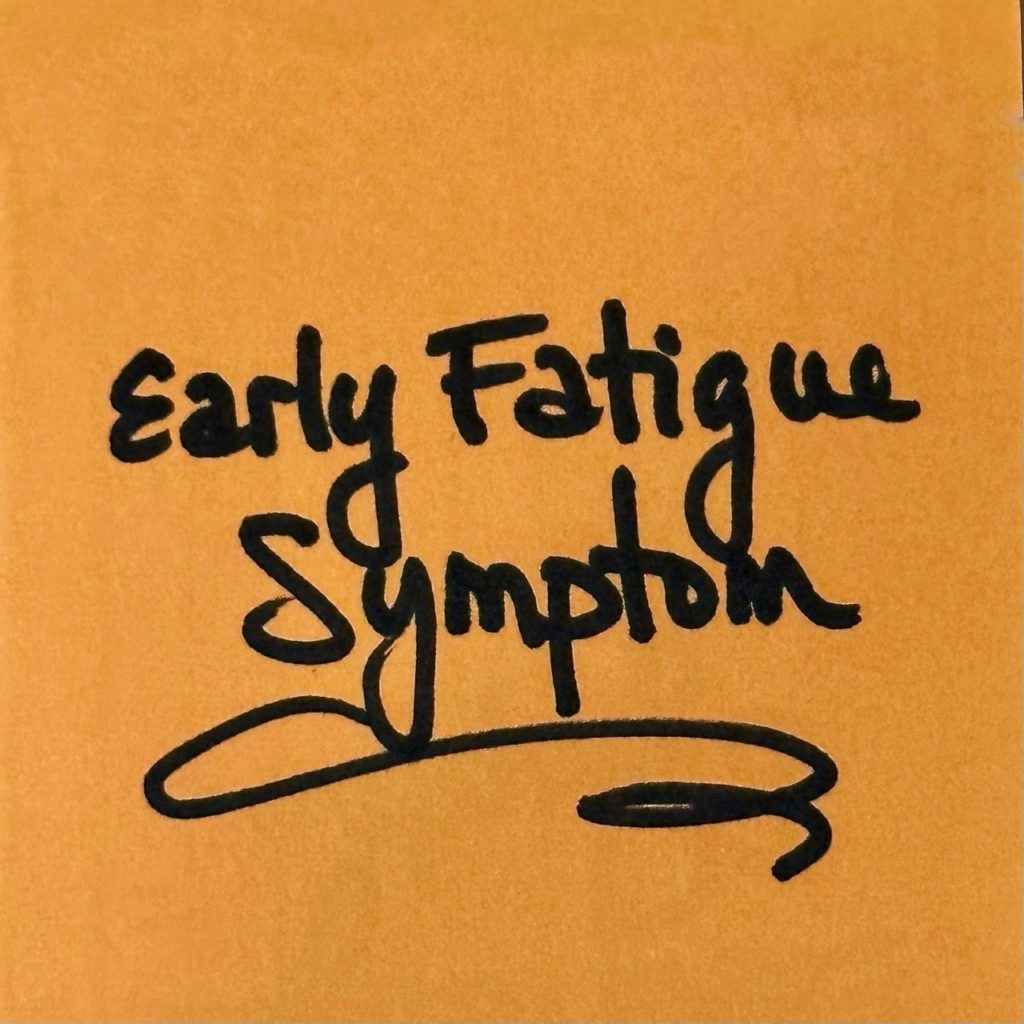By Stacie Prada
When Multiple Sclerosis fatigue rears up, my first noticeable sign is when I stop telling stories that come to mind. I edit myself more, and I contribute to conversations less. A decision point noticeably inserts itself into the thought process.
Do I have the energy to share this story? Am I able and willing to commit to staying in the conversation? When I’m experiencing fatigue, the answer is no. Things I find funny, interesting or relevant become thoughts too big to share.
I decide I don’t have the energy to do the story, memory or perspective justice. Either I don’t have it in me to fully explain the nuance of my thought, or sharing seems like too much effort to undertake in that moment. Comments I might have otherwise made on social media posts become likes instead. I do enough to show I noticed, but I don’t expend the energy it would take to add a written comment.
It’s a subtle indicator, but it’s an important one for me to recognize. The two takeaways I want to recognize when this happens are:
1. It’s time to look at my schedule, medications and options for things within my control that help me cope with fatigue; and
2. It’s a good opportunity for me to listen and ask questions about what others have to say about the conversation.
Listening to others reminisce about stories they’ve already told have been great opportunities to learn more about their thoughts and experiences. Stories I’ve heard many times are enriched with added details and perspective. Resisting feeling impatient or waiting for them to finish gets easier. Actively listening with ease and curiosity while they reminisce becomes the focus. Relishing how special it is that they like sharing that memory with me becomes an honor. Seeing if there is something they say that inspires a question to learn more allows me to simmer in the moment and enjoy their happiness.
It’s a relief when friends and family are willing to carry the conversation instead of pressuring me to engage more or explain why I’m quieter than usual. The task of explaining myself or assuring them I am fine or will be fine takes a lot of energy that I may not have. If they do notice me being quieter or less engaged, not mentioning it can be a tremendous kindness. Weathering MS fatigue and navigating social interactions with grace feels like success. Those stories and thoughts too big to share can save for another day.
*Stacie Prada was diagnosed with RRMS in 2008 just shy of 38 years old. Her blog, “Keep Doing What You’re Doing” is a compilation of inspiration, exploration, and practical tips for living with Multiple Sclerosis while living a full, productive, and healthy life with a positive perspective. It includes musings on things that help her adapt, cope and relish this adventure on earth. Please visit her at http://stacieprada.blogspot.com/



Have got ms and would love to join your group,